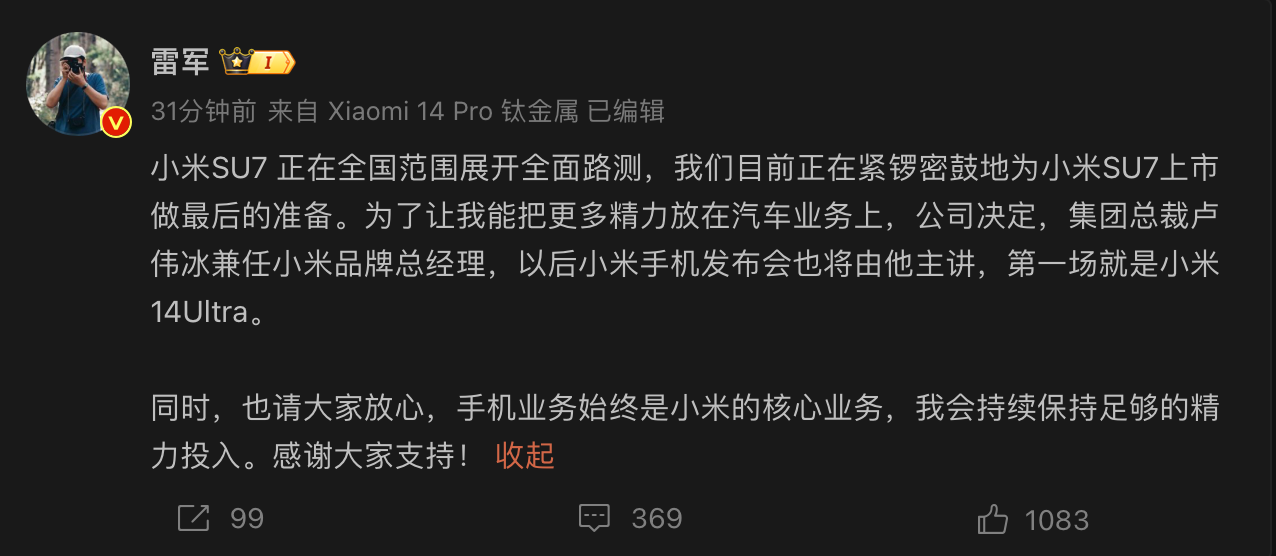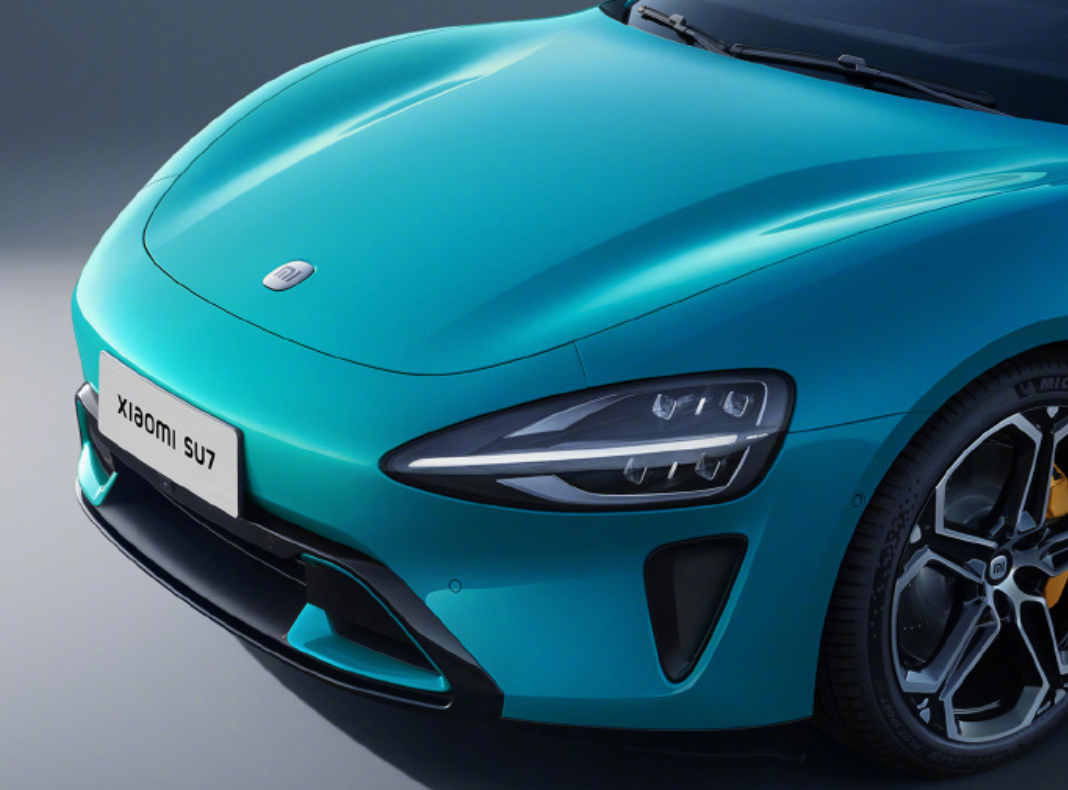In the future, Lei Jun will focus more on the automotive business. Group President Lu Weibing will also serve as the general manager of the Xiaomi brand. He will be the main speaker at future Xiaomi phone launch events.
On February 3rd, Xiaomi Group founder Lei Jun announced on his personal Weibo that the Xiaomi SU7 is undergoing comprehensive road testing nationwide and is currently making final preparations for the launch of the Xiaomi SU7. At the same time, in order to allow Lei Jun to focus more on the automotive business, Xiaomi Corporation has decided that Lu Weibing, the group’s president, will also serve as the general manager of the Xiaomi brand, and will be the main speaker at future Xiaomi phone launch events, starting with the Xiaomi 14Ultra. Lei Jun emphasized that the phone business has always been Xiaomi’s core business and will continue to receive sufficient attention. On December 28, 2023, Lei Jun publicly introduced the technical details of Xiaomi’s first car, the SU7, for the first time, stating that Xiaomi’s goal is to rival Porsche and Tesla, and create the dream car of the new era of the automotive industry, with a focus on being good-looking, good to drive, comfortable, and safe. Xiaomi’s goal is to become one of the top five car manufacturers globally through 15 to 20 years of effort. On January 31, 2024, it was reported that the Xiaomi SU7 will officially enter the SOP phase in mid to late February and start mass production. The production plan for the first month after SOP, in March, is around 2000 vehicles, and it is expected to ramp up production capacity by mid-2024, with production exceeding 10,000 vehicles in July. Before Lei Jun announced the nationwide road testing, some netizens had posted that they had seen Xiaomi SU7 test vehicles. Lei Jun responded that multiple batches of test vehicles had been deployed for road testing, some with disguises, and the undisguised version will be deployed after the launch event.
Currently, the industry’s attention to Xiaomi’s cars is mainly focused on their pricing. On January 30th, it was reported that a large insurance company confirmed that the high-end version of Xiaomi’s car is priced at 361,400 yuan (50740$). This model uses CATL’s ternary lithium battery and has a top speed of 265km/h. In response to this news, Wang Hua, the general manager of Xiaomi’s public relations department, posted on social media that the recent internal vehicle registration is also to test all the processes of sales, delivery, and service, which include registration and insurance purchase. Therefore, this price is only internal. Zhang Xiang, a visiting professor at Huanghe Science and Technology College, told reporters that with the development of Xiaomi’s high-end models, Xiaomi is no longer a low-quality, low-price brand, but it is not a luxury brand either. Therefore, it is preliminary to judge that the pricing of Xiaomi’s cars will be above 200,000 yuan (28080$). A price that is too low will damage its market value as a technology company. In addition, within the price range of around 250,000 yuan (35100$), the competition in the car market is very fierce. Zhang Xiang stated that companies such as Tesla, Geely, Changan, Huawei Seres, and Weimar all overlap in this range, creating a highly competitive market. Lei Jun stated that Xiaomi’s cars are now in small-scale production, and they are expected to be listed in the first half of 2024. Xiaomi’s cars have the performance of luxury cars costing two to three million yuan. Prices of 99,000 yuan (13900$), 149,000 yuan (20920$), or even 199,000 yuan (27940$) are just jokes. The pricing will indeed be a bit expensive, and it will be announced at the official product launch of Xiaomi’s cars in the future.

